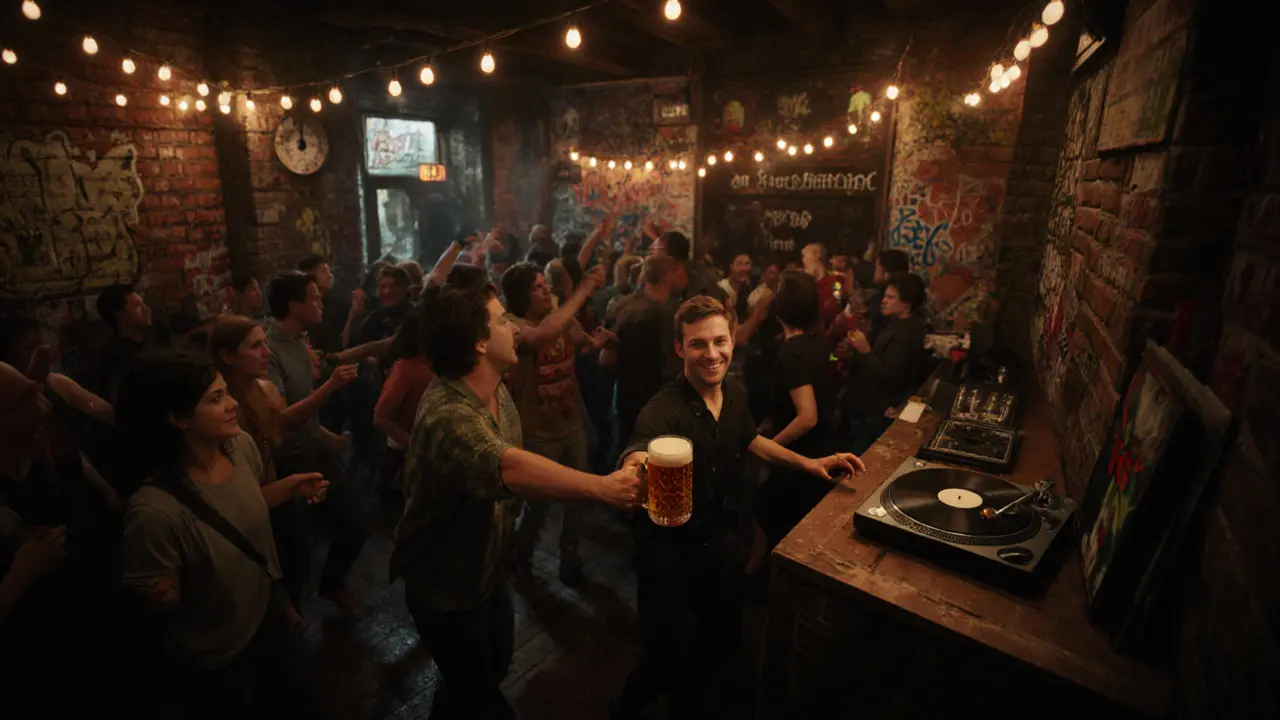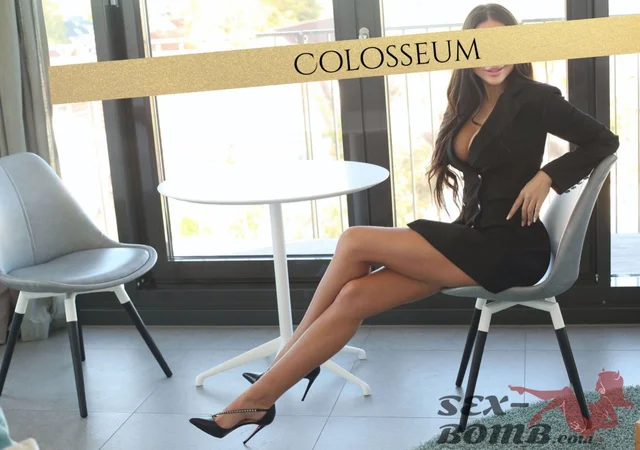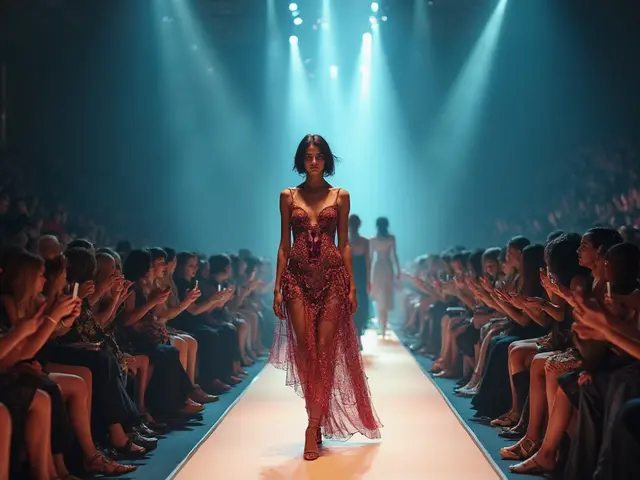You walk into a dimly lit room in the heart of Munich. The bass hits your chest before you even see the crowd. Someone hands you a drink you didn’t order-but you don’t mind. Around you, people are dancing like no one’s watching. Outside, it’s November. Cold. Quiet. But inside? This is where the city breathes.
Munich doesn’t just have clubs. It has clubs in Munich that don’t just play music-they shape nights, build legends, and turn strangers into friends by sunrise. If you’ve ever wondered why people keep coming back, even after a long flight or a hard week, here’s the real answer.
It’s Not Just About the Music
Most cities have clubs. Berlin has techno. London has underground bass. New York has VIP bottle service. But Munich? It’s different. Here, the music changes every night-not because the DJ’s on rotation, but because the crowd decides what sounds right.
At Prater Garten, you’ll find a mix of indie rock, synthwave, and vinyl-only house tracks. The crowd? Students, artists, and old-school locals who’ve been coming since the 90s. No bouncers checking your designer sneakers. Just a guy at the door who knows your name if you show up twice.
At Reinsehl Club, it’s all about the vibe. No fancy lights. No neon signs. Just a warehouse, a sound system that costs more than your car, and DJs who’ve played with legends like Richie Hawtin. You won’t find a drink menu with 50 options. You’ll get one good beer, served in a glass, not a plastic cup. And that’s enough.
Munich’s clubs don’t sell experiences. They build them. And you don’t pay for entry-you earn it.
History That Feels Alive
Many of Munich’s best clubs have roots in the 1970s and 80s, when the city was still recovering from war and rebuilding its identity. Back then, music was rebellion. Clubs were safe spaces for queers, punks, and artists who didn’t fit anywhere else.
Today, Backstage still operates out of a converted 1920s theater. The walls still bear graffiti from the 1980s. The stage? Still used for live bands every Friday. You can feel the history in the creak of the floorboards. You can hear it in the echo of a guitar solo that hasn’t changed in 30 years.
That’s rare. Most cities tear down old clubs to build luxury condos. Munich keeps them. Not because they’re tourist attractions-but because they still matter.
What Makes Munich Clubs Different From Berlin’s?
People compare Munich to Berlin all the time. And sure, Berlin’s got more clubs. But Munich’s got something Berlin lost: intimacy.
At Berlin’s Berghain, you wait in line for hours. You get scanned, questioned, turned away. It’s a ritual. In Munich, you walk into Club 23 at 11 p.m., and the bouncer nods. You know the guy behind the bar. He remembers you liked the gin tonic last time.
Munich clubs are smaller. More personal. You’re not just another face in the crowd-you’re part of the rhythm. The DJ sees you dancing. They play your song. Not because it’s trending. Because they heard you laugh five minutes ago.
Types of Clubs You’ll Find in Munich
- Techno & Underground - Reinsehl Club, Club 23, and Werk 2 are the holy trinity. No dress code. Just respect for the sound.
- Live Music & Indie - Prater Garten, Backstage, and Zeitgeist host everything from folk to post-punk. No auto-tune. No backing tracks. Just raw talent.
- Gay & Queer Spaces - Bar 25 and Die Bar have been pillars of Munich’s LGBTQ+ scene since the 80s. No performative pride. Just real community.
- Student Hangouts - Stammheim and Club 23 are where the Uni crowd unwinds after exams. Cheap beer. Loud music. No pretense.
- Late-Night Jazz & Lounge - Bar 10 and St. Pauli turn quiet after midnight. Smooth saxophone. Dim lights. Perfect for winding down.
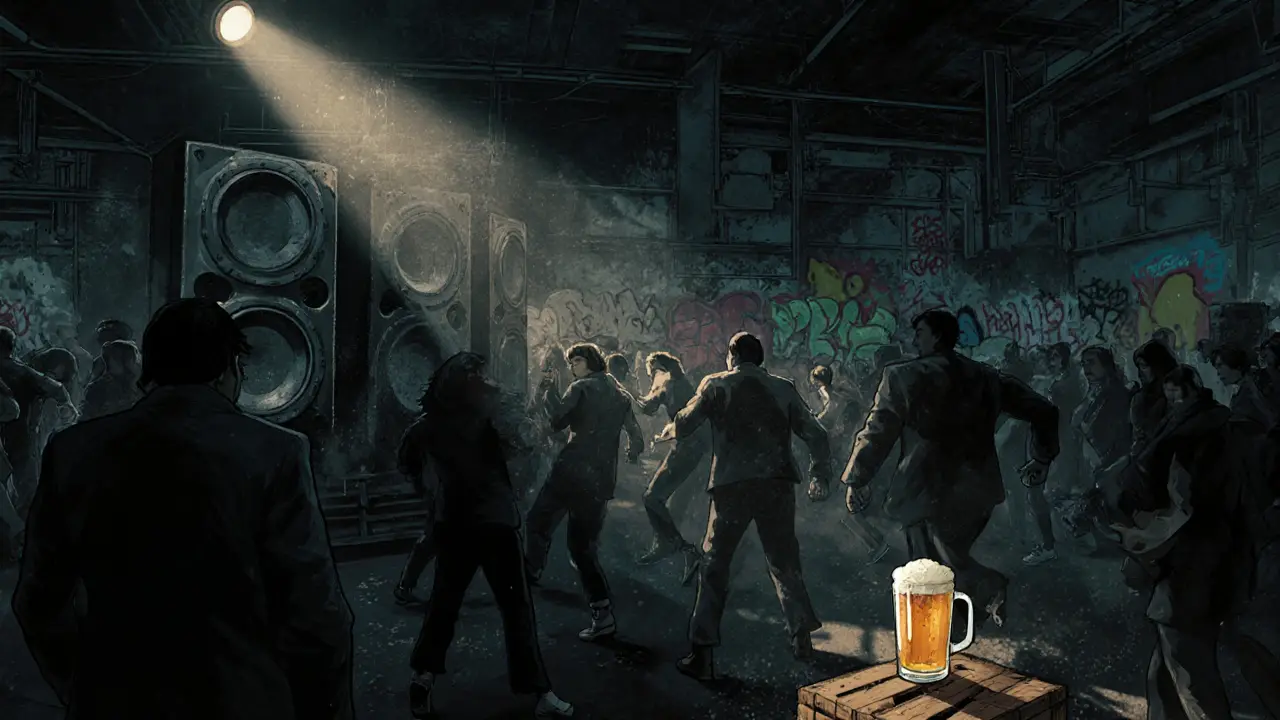
How to Find the Right Club for You
Don’t just Google ‘best clubs in Munich.’ That’ll give you tourist traps with overpriced cocktails and fake VIP sections.
Here’s how to find the real ones:
- Check Munich Nightlife on Instagram. Not the big brands-look for accounts like @muenchner.nacht or @club_munich. Real people posting real nights.
- Ask the barista at your local coffee shop. They know who plays on Fridays.
- Walk around the Glockenbachviertel or Schwabing after 10 p.m. You’ll hear the music leaking out. Follow it.
- Don’t go on a Friday or Saturday unless you want crowds. Go on a Thursday. That’s when the locals show up.
- Bring cash. Many places still don’t take cards after midnight.
What to Expect When You Go
You won’t find valet parking. You won’t see security guards with headsets. You won’t get a complimentary shot.
What you will get:
- A crowd that doesn’t care about your brand name, but cares about your energy.
- A DJ who plays deep cuts, not Top 40 hits.
- A bar that serves beer at €4.50, not €12.
- A moment where you forget your phone’s in your pocket.
- And maybe, just maybe, a new friend who’ll text you next week: “You coming to Reinsehl Friday?”
Pricing and Booking
Most clubs in Munich don’t require booking. Walk in. Pay at the door.
Entry: €5-€15. Usually cheaper before midnight. Some places are free before 11 p.m. if you’re under 25.
Drinks: Beer from €4.50. Cocktails from €8. Wine from €7. No one’s trying to rip you off. That’s the rule here.
Some events-like live bands or themed nights-might need a reservation. But even then, you can just show up and wait. No online ticketing system forces you to pay €30 for a drink you didn’t order.
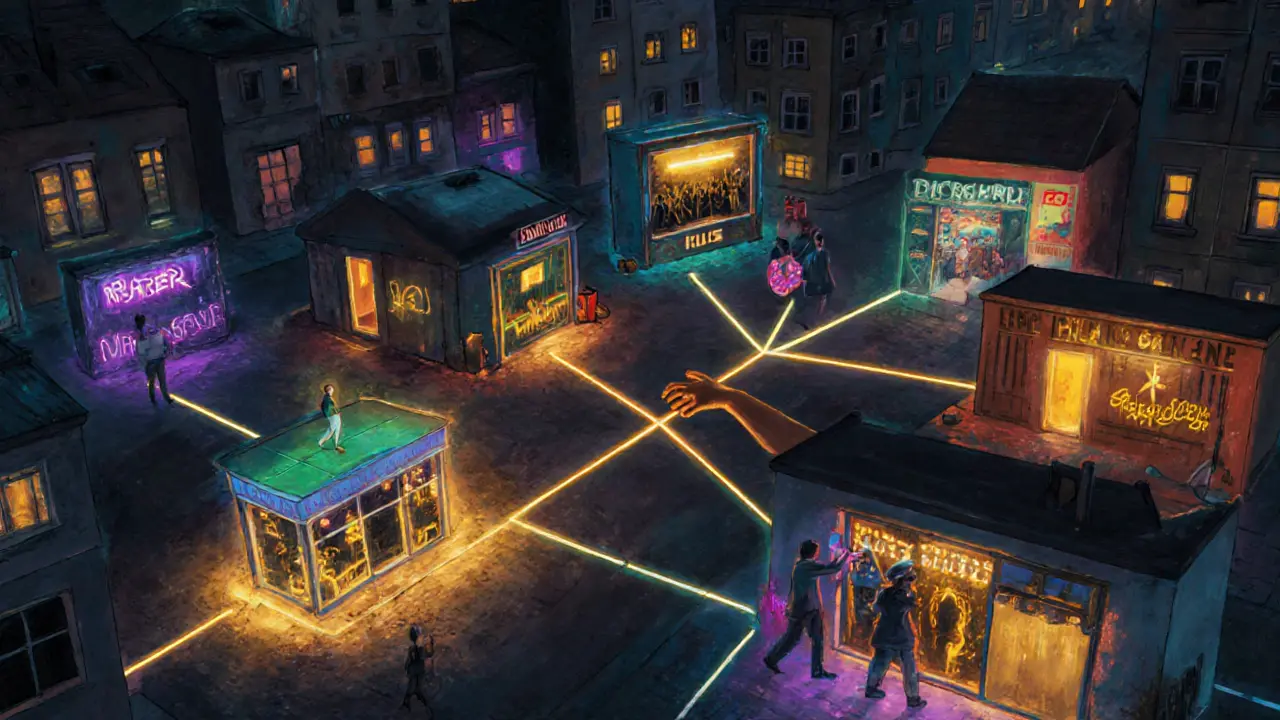
Safety Tips for Clubbing in Munich
Munich is one of the safest cities in Europe for nightlife. But that doesn’t mean you relax completely.
- Don’t leave your drink unattended. Even here, it happens.
- Use the U-Bahn. Night buses run until 3 a.m., and the subway is clean, well-lit, and frequent.
- Stick to the neighborhoods: Glockenbachviertel, Schwabing, and Maxvorstadt. Avoid the outskirts after 2 a.m.
- Carry a small bag. Big backpacks attract pickpockets.
- Don’t feel pressured to drink. Saying “no” is normal here.
Clubs in Munich vs. Berlin: Quick Comparison
| Feature | Munich | Berlin |
|---|---|---|
| Club Size | Small to medium (50-500 people) | Massive (1,000-5,000+) |
| Entry Fee | €5-€15 | €10-€25 |
| Music Focus | Varied: indie, techno, jazz, live | Techno, house, experimental |
| Atmosphere | Intimate, personal, community-driven | Anonymous, ritualistic, institutional |
| Drinks | Cheap, cash-based, no markup | Expensive, card-only, bottle service common |
| When to Go | Thursday-Saturday | Friday-Monday |
Frequently Asked Questions
Are Munich clubs open all year?
Yes. Most clubs in Munich operate year-round, even in winter. Some outdoor venues like Prater Garten close in November, but indoor clubs like Reinsehl and Club 23 stay open every weekend. The only time things slow down is in August, when many locals go on vacation.
Do I need to speak German to enjoy Munich clubs?
No. English is widely spoken behind the bar and among regulars. But learning a few phrases-like “Ein Bier, bitte” or “Danke”-goes a long way. Locals appreciate the effort. You don’t need to be fluent. Just polite.
What’s the dress code in Munich clubs?
There isn’t one. No suits. No designer logos. No heels unless you want them. Most people wear jeans, a good t-shirt, and comfortable shoes. If you look like you’re trying too hard, you’re doing it wrong. The goal is to fit in-not stand out.
Are there any clubs in Munich that are family-friendly?
Not traditional clubs, but places like Zeitgeist and Prater Garten host afternoon events-live music, vinyl markets, art shows-that are open to all ages. These are perfect if you’re traveling with friends who don’t party late.
Can I find international DJs in Munich?
Absolutely. Reinsehl and Werk 2 regularly book international acts-from Tokyo to Toronto. But here’s the twist: they don’t play for fame. They play because they believe in the scene. You’ll often see the same DJs who headlined Berghain playing here for free, just to connect with the crowd.
Ready to Experience It?
Don’t just read about Munich clubs. Go. Walk into one on a Thursday night. Let the music pull you in. Don’t check your phone. Don’t worry about being cool. Just be there.
The city doesn’t need you to be a party animal. It just needs you to show up.

